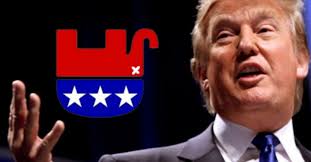
Why Donald Trump may lose influence in the Republican Party
Common wisdom holds that former president Donald Trump remains the dominant force within the Republican Party. The truth is that his personal influence and standing are not as powerful as many imagine, and his power is as likely to decline as it is to increase.
here’s no denying that many Republicans still revere Trump. He remains highly popular with GOP voters, and candidates for office still vie for his endorsement. Two recent Politico/Morning Consult polls show how strong he remains. A mid-May poll found that half of Republicans surveyed would vote for Trump in a hypothetical 2024 presidential primary matchup, and another poll released this week shows that 59 percent want Trump to play a major role in the party going forward. Trump is clearly the single most influential figure in the party today.
But this masks how much his power has declined from its peak. Polls conducted before Election Day in 2020 regularly showed that more Republicans said they were supporters of Trump than they were of the GOP. Echelon Insights, a GOP polling firm, found in October that 59 percent of Republicans said they were Trump acolytes first, compared with only 30 percent who favored the party first. The firm’s May poll, however, found that Republicans were equally split between backing the former president and the party. A NBC/Wall Street Journal poll shows the same trend. The same poll in September found 53 percent of Republicans saying they were Trump backers first compared with 37 percent who were primarily party backers. By April 2021, party backers led Trump supporters among Republicans by a 50-to-44 margin. Trump is still strong, but his standing is falling, not rising.
Other signs point to the gradual erosion of Trump’s influence. Candidates may seek his support, but those who fail to get it don’t drop out of the race. Trump’s endorsement of Alabama Rep. Mo Brooks for his state’s open Senate seat did not dissuade Katie Britt, a former chief of staff to retiring Sen. Richard C. Shelby, from entering the race on Tuesday. Her three-minute announcement video barely mentions Trump and strikes traditional conservative themes of faith, family and hard work.
Nor did Trump’s endorsement of Rep. Ted Budd for North Carolina’s open Senate seat drive Budd’s two prominent Republican opponents, Rep. Mark Walker and former governor Pat McCrory, out of the contest. Contrast this with former senators Bob Corker and Jeff Flake, each of whom decided not to run for reelection rather than face Trump’s wrath. Politically sophisticated Republicans believe they can win GOP primaries without Trump’s backing today, something few would have dared to do even a few months ago.
Trump’s own behavior supports the idea of waning power. He is not trying to influence congressional deliberations at all, leaving legislative strategy to party leaders such as Senate Minority Leader Mitch McConnell (Ky.). The more lawmakers act without Trump’s guidance, the harder it will be for Trump to reestablish his dominance later. Trump also canceled his online blog after less than a month because so few people were reading it. The demand for Trump may be a mile wide, but it seems only a few inches deep among a majority of Republican voters.
It’s hard to see what Trump can do over the next year to strengthen his standing. His decision not to engage in any serious legislative fight will keep him out of the news while potential rivals such as Florida Gov. Ron DeSantis use their positions to curry favor with Republicans. DeSantis is aiming for the party’s sweet spot — Republicans who like Trump’s agenda but are ready to move on from him. An April Echelon Insights poll found that only 41 percent of GOP voters want a party that is led by Trump. Thirty-eight percent take less positive views toward Trump’s future role, with the party’s center being the 21 percent who want a party that supports Trump’s “America First” agenda but is not led by him. As more potential candidates such as DeSantis show that a Trump-like party shorn of his toxic elements is possible, the more Republicans will leave Trump behind.
Next year’s party primaries will be a crucial test for Trump. He has staked his reputation on defeating members of Congress who voted to impeach him while also endorsing early in intraparty contests. He will need to win the vast majority of those contests to prove he is still in command. Anything less, and Republicans will see that they can successfully stand up to the Bedminster bully.
Those who say that the GOP is Trump’s fiefdom are wrong. The barons are restless, and many of the peasants want a new king. Don’t be surprised if these factors depose Trump from his metaphorical throne before the next presidential cycle begins.
